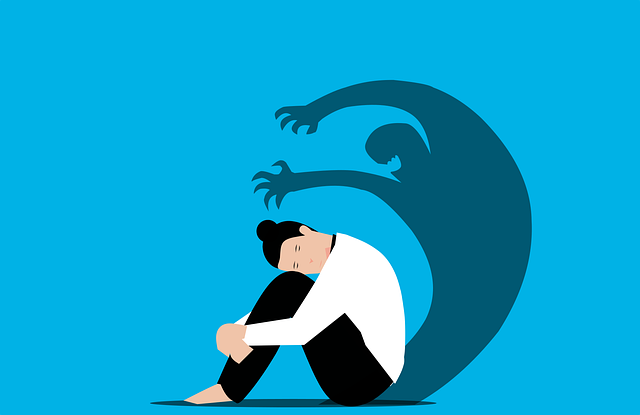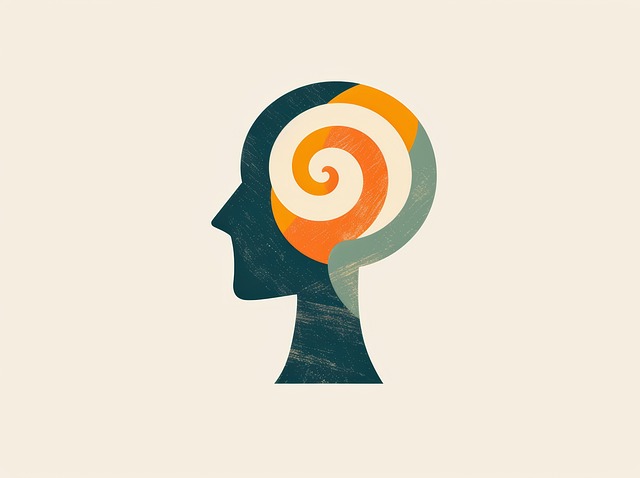Resilience-focused Movement (RFM) offers a novel therapeutic approach for adult phobias, combining physical movement and mindfulness to build mental resilience. This method includes specific exercises designed to confront fear triggers, teaching individuals to regulate emotions and rethink anxiety-inducing situations. RFM complements traditional talk therapy with practical strategies for real-world symptom management, enhancing accessibility and engagement. Its potential benefits include reduced healthcare provider burnout and improved patient outcomes, especially when combined with mental wellness coaching programs. For adults struggling with phobias, effective therapy like exposure therapy is crucial for improving work performance, social interactions, and overall quality of life.
Discover the transformative power of RFM (Resilience, Flexibility, and Mastery) in therapy for adults phobias. This article delves into how RFM, a proven approach, enhances traditional treatments, offering a unique path to overcoming fears. We explore its role in building resilience through targeted exercises, focusing on common adult phobias and their impact. Learn about evidence-based strategies for designing effective sessions and integrating RFM into professional support systems, empowering individuals to conquer phobias once and for all.
- Understanding RFM and Its Role in Phobia Therapy
- The Science Behind Building Resilience through Exercises
- Adult Phobias: Common Types and Their Impact
- Designing Effective Resilience-Building Exercises
- Integrating RFM into Professional Support Systems for Adults with Phobias
Understanding RFM and Its Role in Phobia Therapy

Resilience-focused Movement (RFM) is a therapeutic approach gaining traction in the treatment of adult phobias. This technique leverages physical movement and mindfulness to help individuals confront and overcome their fears, fostering mental resilience. By engaging in specific exercises designed to challenge and reshape their responses to anxiety triggers, participants can learn to regulate their emotions and think differently about situations that once elicited intense fear or avoidance.
In the context of phobia therapy, RFM serves as a powerful tool within a holistic treatment framework. It complements traditional talk therapy by providing practical strategies for managing symptoms in real-world settings. Moreover, its focus on movement and community outreach program implementation can make therapy more accessible and engaging, potentially reducing burnout among healthcare providers while enhancing patient outcomes, especially when combined with mental wellness coaching programs development.
The Science Behind Building Resilience through Exercises

Resilience is a key component of mental wellness, enabling individuals to bounce back from challenges and stress. The science behind building resilience through exercises like RFM (Resourceful Living Model) stems from the understanding that our responses to stressful situations are learned behaviors. By exposing individuals to controlled stressors in a safe environment, these exercises help develop coping mechanisms and enhance emotional regulation skills. This process, known as exposure therapy, is particularly effective for adults with phobias, allowing them to confront their fears in a gradual and manageable manner.
Moreover, RFM and similar resilience-building techniques foster depression prevention and anxiety relief by promoting positive thinking patterns and enhancing self-efficacy. Mental wellness coaching programs often incorporate these exercises into their development, recognizing their potential to transform individuals’ lives. Through consistent practice, people can build mental fortitude, leading to improved overall mental health and a greater sense of control over their emotional responses.
Adult Phobias: Common Types and Their Impact

Adult phobias encompass a wide range of specific fears that can significantly impact daily life and overall mental wellness. Common types include arachnophobia (fear of spiders), agoraphobia (fear of open or crowded spaces), acrophobia (height fear), and specific animal phobias like kleptophobia (fear of theft). These phobias often develop from traumatic experiences, causing intense anxiety and avoidance behaviors when triggered. Without proper therapy for adults with phobias, individuals may struggle to engage in everyday activities, affecting their work performance, social interactions, and overall quality of life.
Effective therapy for adults’ phobias, such as exposure therapy, plays a pivotal role in resilience building. Through gradual exposure to the feared object or situation, individuals learn coping strategies and manage anxiety symptoms. Incorporating self-care routine development for better mental health alongside therapy can further enhance resilience. Mental wellness podcast series production featuring expert insights on stress management may also supplement these efforts, providing practical tools and techniques to combat phobias and promote a sense of calm.
Designing Effective Resilience-Building Exercises

Designing effective resilience-building exercises is a nuanced process that requires understanding the unique needs and challenges of the individuals participating. For adults struggling with phobias, these exercises should be tailored to help them confront their fears in a safe and controlled environment. One successful approach involves gradual exposure therapy, where participants are slowly introduced to situations or objects that trigger their phobias, enabling them to develop coping mechanisms and inner strength. This method not only aids in overcoming specific phobias but also enhances overall resilience by teaching individuals how to manage anxiety and stress effectively.
Integrating social skills training and empathy-building strategies into the exercises can further enrich the experience. Group therapy sessions, for instance, offer a platform for participants to share their experiences, learn from one another, and develop better communication and interpersonal skills. By fostering an environment of understanding and support, these exercises not only strengthen individual resilience but also promote positive social interactions, contributing to a more robust support network that can aid in navigating future challenges.
Integrating RFM into Professional Support Systems for Adults with Phobias

Integrating RFM (Risk, Functionality, and Motivation) into professional support systems offers a powerful approach to therapy for adults with phobias. By assessing an individual’s risk factors, functional abilities, and intrinsic motivation, therapists can tailor interventions that address specific barriers to recovery. This personalized approach enhances the effectiveness of treatments like cognitive-behavioral therapy (CBT), which focuses on modifying maladaptive thoughts and behaviors associated with phobias.
RFM analysis promotes emotional regulation by helping adults understand their triggers, manage fear responses, and build resilience through gradual exposure exercises. Furthermore, it fosters positive thinking by encouraging individuals to reframe negative beliefs and recognize personal strengths. This integrated methodology not only empowers adults with phobias but also equips them with coping strategies that are sustainable in the long term.
Resilience-focused mental (RFM) techniques and targeted exercises have emerged as powerful tools in addressing adult phobias, offering a holistic approach to therapy. By integrating these methods into professional support systems, we can significantly enhance the effectiveness of treating various phobia types, ultimately empowering individuals to overcome their fears and lead more fulfilling lives. This multi-faceted strategy, combining scientific understanding with practical exercises, presents a promising game changer in the world of therapy for adults with phobias.









